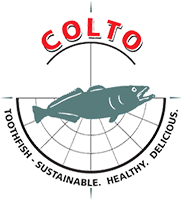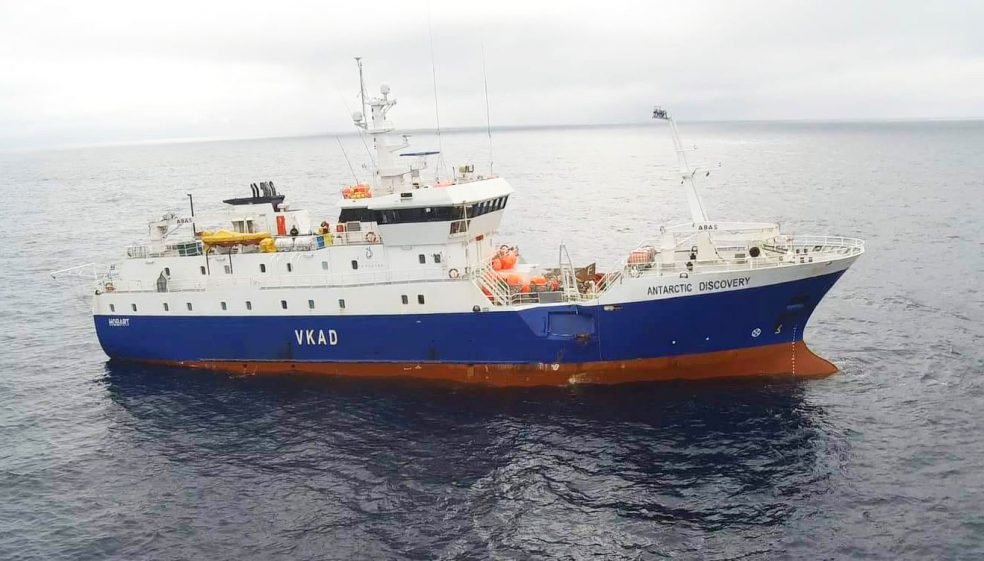COLTO Member, Australian Longline Fishing has become the first fishing company in the world to have a vessel certified to the Global Seafood Assurance Responsible Fishing Vessel Standard (RFVS). The vessel in question is Antarctic Discovery, a 55-meter longliner with a crew of 20-25, plus two observers, operating in the MSC certified toothfish fisheries around Macquarie Island and in the Ross Sea.
The RFVS includes two core principles, vessel management and safety systems, as well as crew rights, safety and wellbeing. RFVS is a revised version of Seafish’s Responsible Fishing Scheme standards, which builds on the experience of the UK sector and reflects future industry needs across global supply chains.
Malcolm McNeill, Managing Director of Australian Longline Fishing, explained the reasoning about how they got involved and why it felt important to gain a vessel certification.
“I first learnt of the developing Responsible Fishing Vessel certification process when I attended the Seafood Summit in Seattle back in 2017 and while we expressed an interest in being “guinea pigs” and getting involved at that time, I understood that it was too early in the development stages. Three years down the track and I read in the media that the Responsible Fishing Vessel Standard was starting to be rolled out internationally hence why Marty (Marty Johnson, Vessel Coordinator) was tasked to reach out to Global Seafood Assurances”.
Why did you want to get involved?
“Being an ex-fisherman, it can sometime be easy to say “that’s how I used to do things back then, so therefore you should be able to do the same now”. However, the world has changed a lot so every now and then it is worthwhile to re-calibrate the thought process and ask ourselves questions, be it about how we fish or who we recruit to do that;
Are we doing it safely?
Are we doing the right thing?
Are we doing it fairly?
The folks on our vessels are experienced crew that work hard and are well respected – many of them have been working with us for many years, but that’s not a reason to get complacent. Irrespective of how well we know we pay and look after our crew there is still a perception of low pay, slave labor and poor living standards on fishing boats. There’s been a lot of press about that around the world. We have always tried to ensure that we are doing the right thing, but what we say we do often doesn’t hold much weight in the public eye, they need proof. There have been many reports of terrible recruiting and treatment in fisheries so it is hard for folks to trust”.
What do you see as the benefit of having your vessel certified?
“When the RFVS certification process was rolled out we saw it as a good way forward, not just to tick the boxes of what we are doing right, but also to bring ourselves in line (or even exceed) with internationally accepted best crewing practices irrespective of the nationality of the crew.
Such certification will enable us to provide our customers with independent assurance that we, as their supplier, engage, employ, pay, and treat all our crew equally, fairly and further that they are trained in safety. This is all in accordance with the immigration and employment regulations of Australia, when needed, as well as the global conventions that have been agreed for the best welfare of fishing vessel crews. The audit process itself highlighted a couple of aspects that we were a bit “relaxed” on, but these were easily rectified which meant a little bit more comfort and security to the current crew,. It also provided us with the template of how we should engage and treat all crew now and into the future.
There are several benefits to the company in getting all our vessels certified. Most obvious is in the market place by customers and consumers. They value the fact that they are purchasing Toothfish from a Marine Stewardship Council certified fishery where we care deeply about the best management which will ensure healthy oceans and fish for tomorrow – and that it has been caught on welfare and safety focused vessels where each crew member is treated fairly and with respect.
Most importantly all of us in the company, can hold our heads up and confidently say that we are doing the right thing, we’re doing it safely and we’re doing it fairly, and we’ve got a respected international organization providing us with the certificate to prove it”.
Marty Johnson (Vessel Coordinator) on how the audit experience went?
“We spent time working with Global Seafood Assurances to make sure we understood exactly what we needed to do. I’d say getting properly prepared is critical – and it also helps tidy up some of those areas that might have become more relaxed. The certification body (Lloyds Register) worked closely with us to time when the vessel would be in harbour (she was audited in New Zealand) and set timings for crew interviews which were closely adhered to. I couldn’t be there so we did a lot of the process remotely, but it worked well even though I couldn’t be on the vessel at the time.
We can be away for up a few months and were getting ready for our next trip. We have a crew of 20-25, plus two observers, and everyone has a job to do in that preparation so timing was critical. I’m really pleased for the company and the crew that we now have – we’re the first to have! – this certification. We’ve booked in the next vessel to be audited in a couple of months from now and we’ll be even better prepared”.
-From FIS

